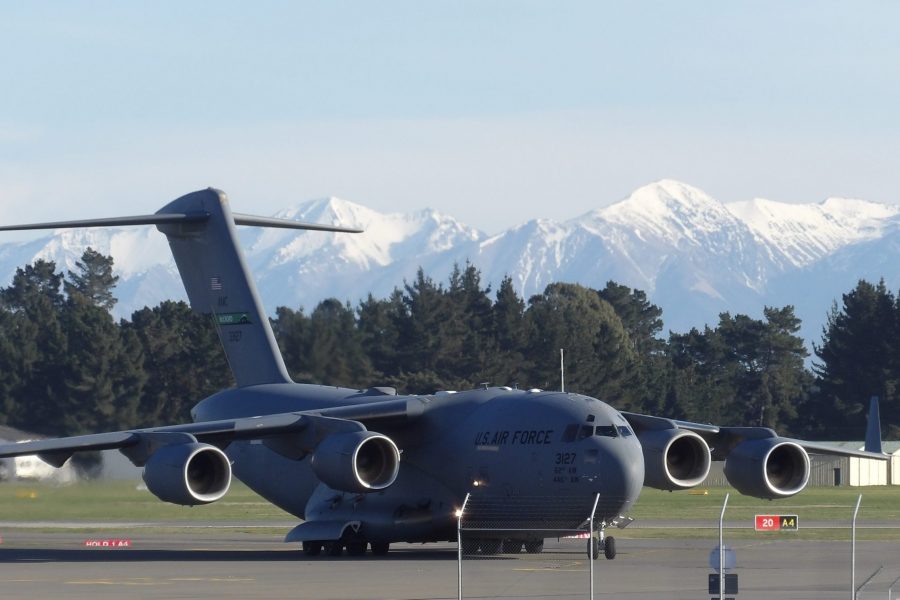Airmen with the 304th Expeditionary Airlift Squadron are quarantining in New Zealand, before the Air Force begins one of the most unique Operation Deep Freeze seasons in recent history.
Because of COVID-19, the 30 Airmen are in quarantine after arriving Aug. 6 at Christchurch. The team, made up of Active duty and Reserve Airmen from the 62nd and 446th Airlift Wing and one supply troop from the 627th Air Base Group at Joint Base Lewis-McChord, Wash., will leave quarantine next week and head to Antarctica—the only continent on the globe free of the new coronavirus.
“Antarctica is the last place on Earth that has been, and continues to be, COVID-free,” the squadron’s commander Lt. Col Brandon Tellez said in an Air Force Reserve Command release. “The [National Science Foundation] teamed up with my unit and we’ve come up with a plan to mitigate any potential transfer of the virus to any of the people we’re taking down there.”
Operation Deep Freeze is the military’s mission to resupply and support NSF personnel and research in Antarctica. It brings in personnel and equipment to the remote McMurdo Station and other locations on the continent. For this early deployment, the squadron is minimizing contact with aircrew and passengers, including mask wearing, and the C-17s will carry an air transportable galley and lavatory so passengers can use different facilities on board than the crew, according to the release. Because of the pandemic, the NSF contingent is keeping the “bare minimum” of people in Antarctica to maintain the buildings and runway, and conduct scientific work that is required year-round, Tellez said in the release.
The busiest part of Deep Freeze typically runs from September to November, as the C-17s ferry in personnel. Aircraft typically return in February to retrieve personnel, and during Antarctica’s winter months from June-August. This contingent arrived in New Zealand before the main-season team will deploy next month, according to the release.
The 304th EAS deployed with a full maintenance team, which is unique for a late-winter trip to Antarctica. Typically, a winter team would bring in just a crew chief, but because of COVID-19 the squadron brought the full team because if there were any issue with the aircraft, fixes would be delayed as a maintenance recovery team also would have to quarantine.
“So, what we did for this mission, which was a little non-standard, is we brought down our normal main season maintenance package with about one person from every specialty in maintenance down here with us,” Tellez said. “That way if anything goes wrong with the jet, we’re able to fix it without having to wait for a specialist to come out.”
